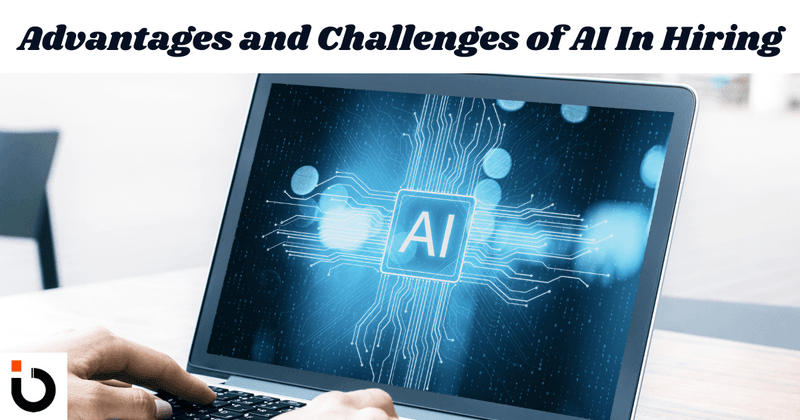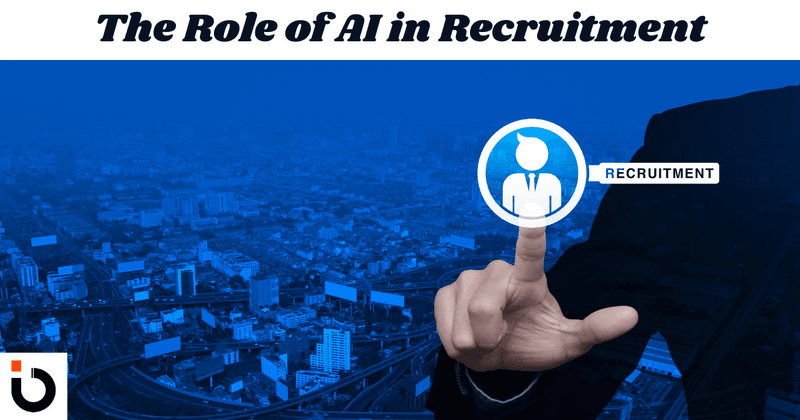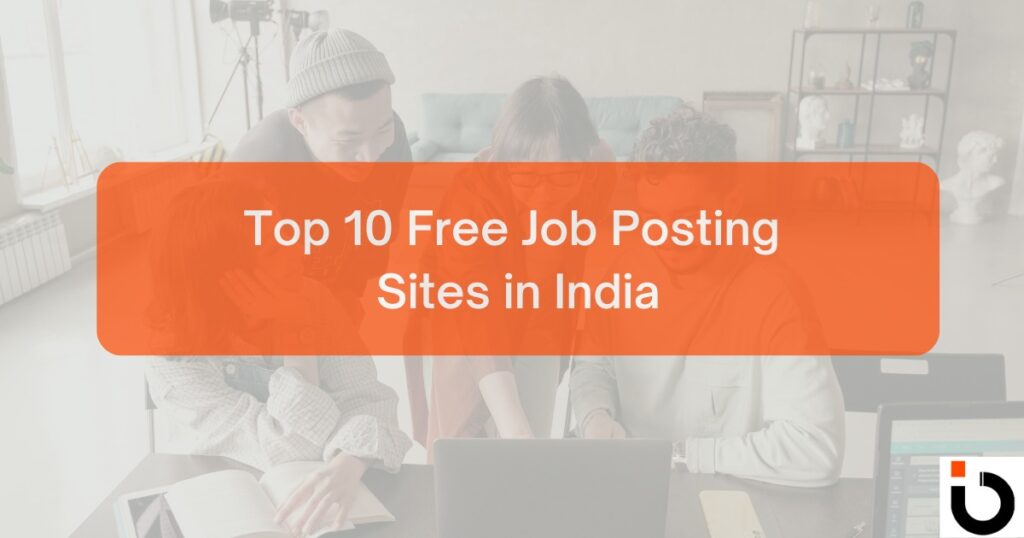Recruiting new employees can be a time-consuming and expensive process for any company. The traditional method of manually going through resumes and cover letters can be a daunting task for HR managers, especially if there are a large number of applicants for the position.
This is where AI in recruitment comes in handy. AI is revolutionizing recruitment by making the hiring process more efficient, accurate, and cost-effective. They help organizations streamline recruitment by automating the screening process, which saves time and resources.
In this blog post, we will delve into the role of AI Solutions in hiring and how these technologies can help recruiters and HR managers to find the best candidates for the job.
Table of Contents
ToggleChallenges of Traditional Hiring Process
The traditional process of hiring in the past was a tedious and time-consuming task that could take weeks if not months. It involved multiple rounds of interviews, sorting through piles of resumes, and coordinating with hiring managers and other stakeholders.
These are the challenges faced in the hiring process:
- Time-Consuming Screening Process
- Unconscious Bias
- Difficulty in Sourcing Candidates
- Limited Data Utilization
- High Costs
- Inconsistent Hiring Practices
- Difficulty in Handling Large Volumes of Applications
- Slow Response Time
- Challenges in Assessing Soft Skills
- Manual Coordination
- Inefficient Use of Recruiter’s Time
- Difficulty in Predicting Candidate Success
Related Read: Free ATS Resume Checker
Understanding the Role of AI in HR Recruitment
Artificial intelligence (AI) has been changing the recruitment game for a while now. More and more companies are starting to use AI in their recruitment process to automate and streamline the hiring process.
One of the main benefits of using AI in recruitment is that it can help eliminate bias in the selection process. AI algorithms can be trained to look for specific skills and attributes needed for a specific job without being influenced by factors such as age, gender, or ethnicity.
Another way that AI is being used is in resume screening. AI algorithms can quickly scan through hundreds of resumes, picking out the most qualified candidates based on specific criteria, such as education, work experience, and skills. This can save recruiters a lot of time and effort, allowing them to focus on the more human aspects of the recruitment process, such as interviews and candidate engagement.
AI can also be used to conduct initial interviews, using chatbots or virtual assistants to ask candidates predetermined questions. This can help filter out unsuitable candidates and identify those who are the best fit for the role.
Overall, the role of AI in recruitment is to make the process faster, more efficient, and more accurate. While it won’t replace human recruiters, it can certainly help to make their job easier and more effective.
Suggested Read: Video Interviewing Platform
AI in Recruitment Examples
In this section, we are highlighting key applications, tools, and real-world use cases:
- Automated Resume Screening
- AI-Powered Chatbots
- Video Interview Analysis
- Candidate Sourcing
- Predictive Analytics
- Skills & Cognitive Assessments
- Bias Mitigation
- Automated Interview Scheduling
- Candidate Rediscovery
- Job Description Optimization
- Talent Analytics Platforms
- AI-Driven Background Checks
- Social Media Sourcing
AI is transforming recruitment by enhancing efficiency and scalability, but ethical implementation remains critical. Companies like Unilever, Hilton, and IBM exemplify successful adoption while addressing challenges.
Advantages of Using AI in Recruitment Process | Benefits of AI in Recruitment
Here are some key advantages of use of AI in the recruitment:
1. Faster Screening and Shortlisting
AI can quickly analyze thousands of resumes and applications, identifying the most qualified candidates in a fraction of the time it would take a human recruiter. This accelerates the hiring process and ensures that top talent is identified early.
2. Reduction of Unconscious Bias
AI algorithms can be designed to focus solely on relevant qualifications and experience, reducing the influence of unconscious biases related to gender, ethnicity, age, or other non-relevant factors.
3. Improved Candidate Matching
AI can analyze candidate profiles in greater depth, considering a wide range of factors such as skills, experience, cultural fit, and even social media activity to provide a more accurate match between candidates and job roles.
4. Enhanced Candidate Experience
AI-driven chatbots and automated communication tools can provide instant responses to candidate inquiries, guide them through the application process, and keep them informed, improving their overall experience.
5. Efficient Handling of Large Volumes of Applications
AI can process and manage large volumes of applications, ensuring that no candidate is overlooked and that the recruitment team can handle high volumes without being overwhelmed.
6. Data-Driven Decision Making
AI provides data analytics and insights that help recruiters make informed decisions. This includes predicting candidate success and identifying trends in hiring, which can lead to better hiring strategies.
7. Consistency in Hiring
AI ensures a standardized screening process where all candidates are evaluated using the same criteria, leading to more consistent and objective hiring decisions.
8. Cost-Effective Recruitment
By automating time-consuming tasks such as screening and initial interviews, AI reduces the need for extensive human resources, leading to cost savings in the hiring process.
9. Enhanced Onboarding Processes
AI can assist in automating and personalizing the onboarding process for new hires, ensuring they receive the information and resources they need to start their roles effectively.
10. Scalability
AI-driven recruitment processes can easily scale up to handle recruitment needs as an organization grows, managing more candidates and more job openings without a significant increase in resources.
These advantages make AI an increasingly valuable tool in modern recruitment, helping companies attract and hire the best talent more efficiently and effectively.

Challenges and Risks: Disadvantage of AI in Recruitment
Some key challenges and risks associated with using AI in recruitment:
1. Bias in Algorithms
Challenge: AI algorithms are only as unbiased as the data they are trained on. If the training data reflects historical biases (e.g., gender or racial biases), the AI can perpetuate or even amplify these biases in the hiring process.
Risk: This could lead to discriminatory hiring practices, where certain groups are unfairly favored or disfavored, potentially leading to legal and ethical issues.
2. Lack of Transparency
Challenge: AI systems often operate as “black boxes,” meaning their decision-making processes are not easily understandable or explainable by humans.
Risk: This lack of transparency can lead to distrust in the AI system among candidates and recruiters, and it can be difficult to audit or correct the AI’s decisions if they are found to be unfair.
3. Over-reliance on AI
Challenge: Relying too heavily on AI in recruitment can result in overlooking the human element, such as cultural fit, personality, and other nuanced factors that are crucial in making a good hiring decision.
Risk: This could lead to hiring decisions that are too rigid or missing the personal touch that could make a significant difference in long-term employee satisfaction and retention.
4. Data Privacy Concerns
Challenge: AI systems require large amounts of data to function effectively. Collecting and processing this data can raise significant privacy concerns, especially if sensitive personal information is involved.
Risk: Mishandling of candidate data can lead to breaches of privacy, legal penalties, and damage to the company’s reputation.
5. Cost and Implementation Complexity
Challenge: Implementing AI in recruitment can be expensive and complex, requiring significant investment in technology and training.
Risk: Smaller companies might find it challenging to implement AI effectively, and there is always the risk that the AI solution may not deliver the expected ROI if not implemented properly.
6. Ethical Concerns
Challenge: The use of AI in recruitment raises several ethical questions, such as how candidates are assessed and what criteria are used.
Risk: There could be ethical dilemmas in how AI decisions are made, particularly if AI is used to make final hiring decisions without human oversight.
7. Regulatory Compliance
Challenge: Different countries and regions have varying regulations regarding data use, discrimination, and AI. Keeping AI systems compliant with these regulations is a significant challenge.
Risk: Non-compliance with local laws and regulations can lead to legal consequences, including fines and restrictions on the use of AI technologies.
8. Reduction in Human Interaction
Challenge: AI can reduce the amount of direct interaction between recruiters and candidates, which can make the recruitment process feel impersonal.
Risk: This may result in a less engaging candidate experience, potentially leading to a decrease in the quality of hires and harm to the employer brand.
9. Inaccurate Predictions
Challenge: AI models may not always make accurate predictions about a candidate’s potential success in a role due to limitations in the data or the model itself.
Risk: This can lead to poor hiring decisions, such as hiring someone who is not a good fit for the role or passing over a candidate who would have been an excellent hire.
10. Dependence on Quality of Data
Challenge: The effectiveness of AI in recruitment heavily depends on the quality of the data fed into the system.
Risk: Poor-quality data can lead to inaccurate assessments, biased outcomes, and overall ineffective recruitment processes.
These challenges highlight the importance of careful implementation, continuous monitoring, and human oversight when using AI in recruitment to ensure it adds value without introducing significant risks.
Suggested Read: AI in Talent Aquistion by IBM
Common Objections By HR
While recruitment software and AI have been revolutionizing the hiring process, there are still some common objections that companies can have when it comes to adopting these technologies.
One of the most common objections is the fear that the software will replace human interaction in the hiring process. However, it is important to understand that recruitment software and AI are meant to streamline the recruitment process, not replace it. These technologies can help recruiters with time-consuming tasks such as screening resumes, scheduling interviews, and sending automated communication to candidates. This leaves recruiters with more time to focus on building relationships with candidates and making meaningful connections.
Another common objection is the concern about the cost of recruitment software. While there can be some upfront costs associated with implementing these technologies, they can save companies money by reducing the time and resources needed for the recruitment process in the long run. Additionally, many recruitment software providers offer customizable pricing options so companies can choose a plan that fits their budget.
Lastly, some companies may worry about the learning curve associated with new technology. However, many recruitment software systems are designed to be user-friendly and require little to no training to get started. Additionally, many software providers offer customer support and training resources to ensure a smooth transition for recruiters.
Overall, while there may be some initial hesitation when it comes to recruitment software and AI, it is important to recognize the benefits that these technologies can bring to the hiring process and to approach the adoption of these tools with an open mind.
The future of recruitment: Looking forward to AI
Artificial Intelligence (AI) has already revolutionized many industries, and recruitment is no exception. AI can help streamline the recruitment process by automating many of the tedious and time-consuming tasks involved in hiring.
For example, AI-powered chatbots can be used to conduct initial candidate screenings and answer frequently asked questions, freeing up recruiters’ time to focus on more in-depth assessments of candidates.
Machine learning algorithms can also be used to analyze large amounts of candidate data to identify patterns and predict which candidates are most likely to be successful in a particular role. This can help recruiters make more informed hiring decisions and reduce the risk of hiring the wrong person.
Another area where AI is beginning to make an impact is in diversity and inclusion. AI algorithms can help to eliminate unconscious bias in recruitment by removing identifying information from resumes and applications, allowing recruiters to focus solely on the candidate’s skills and experience.
Looking to the future, AI is set to play an even bigger role in recruitment. As technology continues to advance, we can expect to see more sophisticated AI-powered tools that can handle even more of the recruitment process, from sourcing candidates to scheduling interviews and even making job offers. While there will always be a need for human involvement in recruitment, AI has the potential to make the process faster, more efficient, and more accurate than ever before.
Conclusion: Making the most of Technology in Recruitment
In conclusion, technology has revolutionized the recruitment process, making it more efficient and effective. The use of ATS software and AI has enabled recruiters to manage applications more systematically, track candidates’ progress, and identify the best candidates for the job.
However, it is important to note that while technology has made the recruitment process more streamlined, it cannot replace the human element. Recruiters still need to engage with candidates, build relationships, and make the final hiring decisions.
Therefore, it is important to strike a balance between the use of technology and the human touch to ensure successful hiring outcomes. Recruiters should always aim to provide a positive candidate experience, whether it’s through the use of video interviews or virtual job fairs, as this will set the tone for a healthy employer-employee relationship.
In summary, the role of technology in recruitment is significant and will continue to evolve as more advanced tools are developed. However, recruiters must ensure they are using technology in a way that complements human intuition and skills, rather than replacing them altogether.
Suggested Read: JD Full Form



